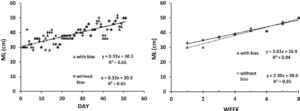With regularity the subject of ‘the sin of infidelity’ comes up. Like clockwork, there’s always some wanting to know if infidelity is a sin.
In terms of knowing whether or not infidelity (or adultery) is sin, even a cursory reading of Holy Scripture addresses that concern. It’s #7 of the ten commandments.
In addition, it’s also stealing affections that don’t belong to you. So a case can be made that it’s theft as well.
Although this concern is settled, there are always those who go looking for loopholes. Like lawyers examining a contract, they search for when it’s sin or not sin. They look for exceptions to the rule.
Instead of viewing infidelity in terms of sinful behavior, they instead view it in terms of whether or not the affair is ‘reasonable’.
They even want to know ‘why’ it’s wrong and question whether it’s relevant any longer. They put their rational thought ahead of any morality on the topic.
Going through the phase of looking for loopholes and exceptions is one of the common steps cheaters wrestle with. Some even take the position that the standards don’t apply to them or their situation.
Somehow when your spouse is ill or away, they think that cheating is acceptable. Some even take the position that if your spouse doesn’t share the same faith as you, it’s not adultery, since they are persona non grata.
I’ve also seen ‘recovery experts’ look for loopholes by either saying they don’t believe in marriage or that they don’t believe in God. In taking those positions, they avoid the moral questions surrounding infidelity.
There are also some who not only consider infidelity a sin, they hold onto the idea that it’s an unforgivable sin. They believe that once it happens, your marriage is totally over.
What I think is more important in affair recovery is healing after the sin of infidelity. You and your marriage can recover from what happened.
I believe infidelity is forgivable. Infidelity doesn’t have to mean the end of your marriage.
There are ways of restoring your relationship. There are ways of recovering and healing your soul, heart and mind after it happens. Infidelity doesn’t have to be considered an unforgivable sin unless you want it to stay that way.
Holding onto your resentments and grudges is a sure way of keeping infidelity unforgiven. Withdrawing from your spouse and refusing to talk with them is another way of keeping things unforgiven.
Keeping secrets and telling lies about the affair also keep it unforgiven. Then there are some who don’t know how or where to start letting go of something that did so much damage.
I find that some of the same people who consider infidelity an unforgivable sin are often those whose end up sinning in holding onto their own grudges, resentments and bitterness. It’s a weird paradox of how they treat infidelity ends up tripping up themselves.
If you’re one who doesn’t know where to start or how to forgive, there’s hope. In the video “Forgiveness: Stop the Pain, Tear down the walls and Remove the roadblocks”, I address the how and where to start concerning forgiveness.
Recovery from infidelity is possible. The question is whether or not you want to recover.
You can click and download the video, starting your journey to recovery within a few minutes.
Infidelity doesn’t have to be an unforgiveable sin.
Keeping It Real,
Jeff















